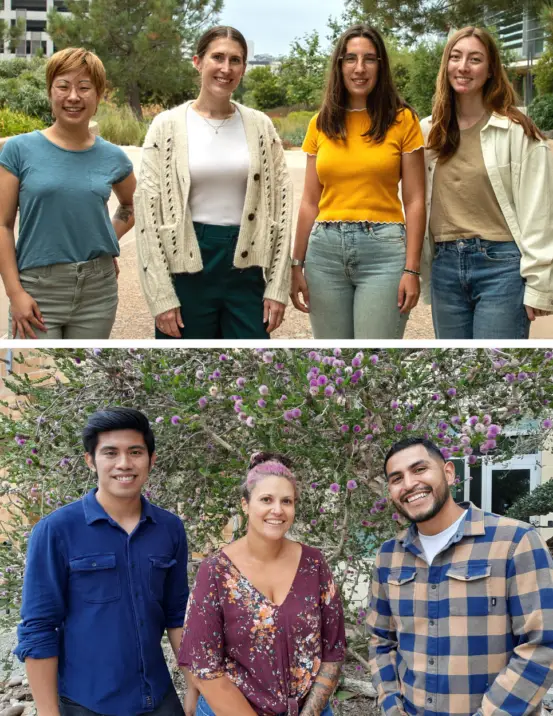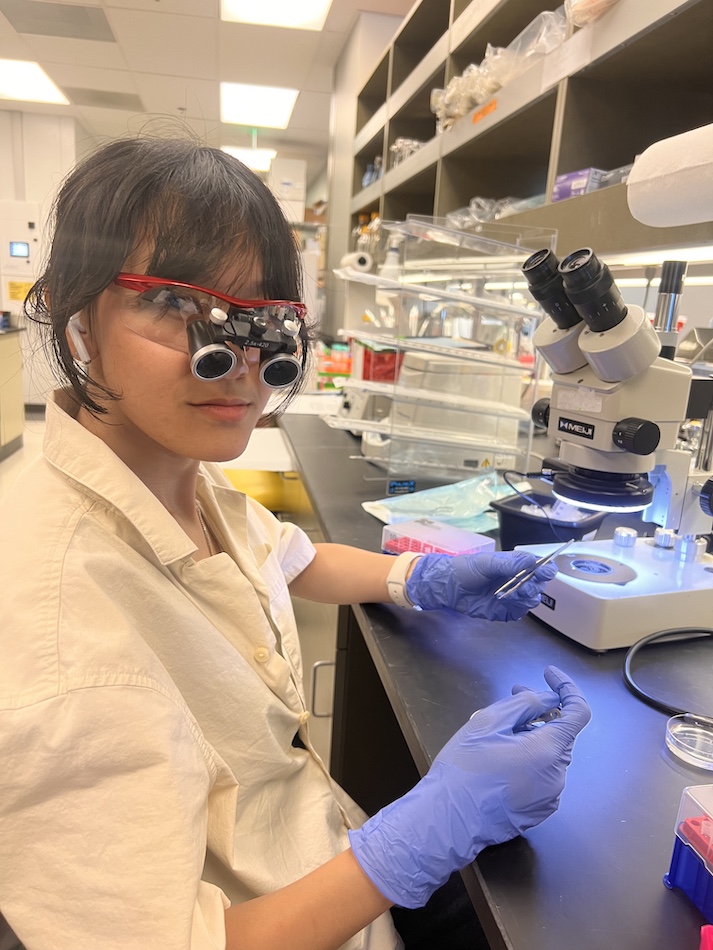Laboratories at La Jolla Institute for Immunology (LJI) welcome dozens of interns each year. These early career scientists are usually local college or high school students who reach out to LJI scientists directly or are recommended for internships through their teachers or professors.
Interning gives future scientists an educational and career “leg up,” so LJI is working to offer more intern positions to students from groups historically underrepresented in the sciences. In 2022, LJI scientists, staff, supporters, and a volunteer committee established a summer internship program where interns could work and learn in LJI laboratories as they practiced professional skills.
Thanks to these efforts, the 2022 summer interns included students from The Preuss School in La Jolla, the UC San Diego PATHS program, and from Stillman College, one of America’s leading Historically Black Colleges and Universities (HBCUs).
For 2023, the LJI team aimed to strengthen the program further by organizing a series of workshops for both summer interns and their mentors.
“Our huge overall goal is to increase diversity in STEM and make sure a path to a STEM career is accessible to students who may have particular barriers, such as coming from a low-income household,” says LJI Research Technician and internship program volunteer Christina Kim.

Kim served as the overall coordinator for this summer’s internship program. She worked closely with LJI Human Resources Analyst Sara Clark, as well as internship program volunteers Suzie Alarcón, Edgar Juarez, Kendall Kearns, Ester Marina Zarate, Ph.D., and Paul Lopez.
Their plan for 2023 began with a training for the LJI scientists who would be working closely with the interns. “That was really helpful both for setting expectations for the mentors—and also the expectations the mentors had for their interns and how to best support them,” says Clark. The team also ensured the summer interns would be paid a stipend, removing a barrier for students who would normally need to find summer jobs.
The 2023 summer interns included four high school students from The Preuss School in La Jolla and two undergraduate students from the UC San Diego PATHS program. They were matched with mentors in labs focused on vaccine research, asthma research, computational biology, and more.
To mark their entry into the world of biomedical research, LJI held a “white coat ceremony,” where the interns received their white lab coats. White coat ceremonies are a rite of passage for medical students, and the LJI team wanted to recognize the interns’ commitment to research in the same way.
The LJI team also organized social events, such as an intern mixer, and professional workshops to help the interns practice workplace skills that will serve them whether or not they pursue laboratory work for a living. Organizers also invited interns to a weekly lunch series to meet with a range of LJI scientists and staff members to learn about career paths in the sciences.
“We wanted the experience to be holistic in terms of what we were showing the students and how we were supporting them,” Clark says. “So we held basic lab skills workshops to expose them to different parts of science, but we also had trainings, like a college application workshop and writing workshops, to provide them with those resources that they might not otherwise have access to.”
In August, the interns presented their work to the LJI community, but their impact at LJI didn’t end there. One intern from 2022 has continued in a part-time research position at LJI. Another intern from 2023 has seen the data he gathered over the summer prove valuable in a recent grant application.
Will this summer have a long-term impact on the interns? Kim and Clark are encouraged by the results of a survey they gave the interns before and after the internship period. “It was great to see an improvement in the interns reporting that they could see themselves in a career in the sciences,” says Clark.
Kim hopes LJI can increase the number of interns for summer 2024. She says the 2023 program gave LJI a solid roadmap for how to encourage and train young scientists.
“The interns said they felt really supported, and they didn’t really have anything that they would change,” says Kim. “So I think we run with that!”
Learn more: The power of an internship
Internships are an important part of launching a career in science. Through internships, students have opportunities to meet mentors, learn basic lab work skills, and see if the research world is a good fit for them. LJI interns have gone on to earn national honors for their work and even publish their findings. Interning also gives students an advantage as they apply for universities, graduate programs, or other jobs. In fact, a 2021 survey by The National Association of Colleges and Employers showed that completing an internship was the most influential factor in employers’ minds when deciding between two otherwise identical job candidates.
[Read more: High school interns dive into the worlds of microscopy and histopathology]


